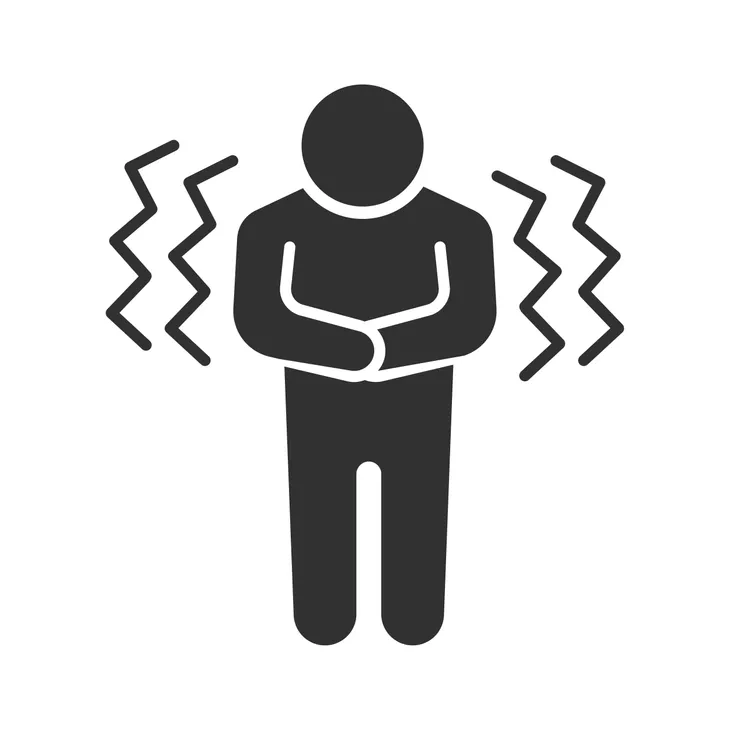Flu season is most prevalent during the cold months of winter, although no one is guaranteed to avoid an influenza infection when the weather starts to warm up. In fact, the temperature fluctuations of spring and fall can contribute to the development of the flu, much to the surprise of many people.
To provide the best counter to an emerging flu infection, it’s important to clearly understand the absolute earliest signs that it may be settling in. While we often associate the flu with upset stomach and vomiting, there are a number of other symptoms that tend to make its presence known far earlier. By understanding some of these early symptoms of the flu, you can take appropriate action, such as visiting your family doctor, and work towards limiting the infection’s impact on your personal and professional lives.
1. Fever
Arguably the earliest sign of the flu is the development of a fever. Not your typical moderate fever either, most flu sufferers will have high fevers, with their body temperature rising above 101-degrees Fahrenheit.
This sets the flu apart from the common cold, which rarely comes with a high fever. Even when you get rest, fluids, and take medication designed to reduce inflammation and fever, you may continue to experience a high fever. That’s a good sign that you’re dealing with the flu rather than the common cold.
2. Chills
Head out into the cold winter weather without the proper insulation (i.e., winter coat, gloves, scarf, and head protection) and you’ll soon find yourself shivering with the chills. It’s not a great feeling, which is why so many of us spend the majority of our time inside during the winter months, wrapped under blankets or in front of a fire.
Chills aren’t always a direct result of the cold temperatures that come with winter. Feeling so cold that your body literally shakes can be a very early symptom of the flu. In fact, it’s the result of your body fighting the flu so vigorously that it causes your muscles to rapidly expand and contract, leaving you shivering as if you’d just jumped into a snowbank without any clothes on.
3. Fatigue
If you find yourself suffering through the common cold, with that stuffed up nose, cough, and sore throat, you’re going to feel considerably less energetic than you did when healthy. But there’s a good chance you’ll at least be able to shuffle out of bed, and with some over-the-counter cold medication, you may even be able to go about your day.
But this is very unlikely to work if you have the flu (as opposed to the common cold). This is because one of the earliest symptoms of the flu is a severe and lasting feeling of fatigue that may not subside until you’re almost over the illness. So, if you feel so exhausted that you can’t easily move about, even after getting some sleep, then there’s a good chance you have the flu and not the common cold.
4. Diarrhea
Diarrhea can strike at just about any time for a wide range of reasons. Maybe last night’s dinner didn’t sit particularly well with you or maybe you regularly struggle with digestive problems, such as irritable bowel syndrome.
Or, perhaps, you’re starting to come down with the flu. It’s important to note that diarrhea is often an early sign of the flu. But because diarrhea can occur when we’re generally quite healthy, it’s important to look for some of the other early symptoms of flu on this list before becoming too concerned.
5. Vomiting
Vomiting may be the most awful and uncomfortable symptom of the flu, and it is typically associated with the “middle” stage of the flu. But it can also act as an early sign that something is significantly wrong.
In fact, some individuals will experience vomiting as a very early symptom of the flu, perhaps before they have any idea that they are about to be struck with the virus. That means some people may assume they ate something bad for vomiting to occur; instead, anyone who may have been around someone with the flu should consider vomiting a potential early sign of the virus.
6. Muscle Pain
Most people have some understanding of their muscle pain. For young people, it’s usually the result of strenuous activity that the individual isn’t quite used to, such as getting into a new exercise regimen at the gym or trying a different type of sport. And while older adults tend to have more difficulties with sore, achy muscles, it’s often possible to pinpoint how these problems emerged.
That’s why sudden and strange muscle aches are often an early sign that something uniquely wrong may be emerging. The sudden feeling that many of your muscles, and not just those in areas you’ve had trouble with before, are sore is a good indication that the flu may be starting to settle in. This, combined with any of the other early symptoms of the flu on this list, should prompt you to talk to your doctor.
7. Loss of Appetite
For some people struggling to maintain a healthy body weight, loss of appetite might actually be seen as a surprising and welcome turn of events. But there’s a reason most people don’t fast for very long: without a regular supply of food and ideally, healthy foods, such as fruits, vegetables, and whole grains — the body loses its natural source of energy. The result can be feelings of extreme exhaustion, headaches, and general aches that grip the body.
Loss of appetite also just happens to be one of the very earliest symptoms of the flu. Appearing seemingly out of nowhere, it could be a sign that your body is struggling with the flu virus. To help yourself out, try to eat something small that’s healthy, such as some fruit, and some fluids, such as a glass of water or cup of tea.
8. Sore Throat
A sore throat or a nasty cough is often the first sign of the flu, but it can be easily dismissed for a number of reasons. For one, you can get a sore throat if you snore much of the night, as this means your throat is constantly exposed to the drying effects of air. Second, you may get a sore throat if you leave the window open, allowing cold air into your bedroom. Third, using a fan can result in a sore throat, as it may direct air towards your face, drying out your throat and nasal passages. Of course, seasonal allergies can also result in a sore throat.
In most of these cases, the feeling of a scratchy, painful throat should subside after a couple hours. But in the case of the flu, it may persist throughout the day, acting as a very early sign that the flu virus may be active in your body.
9. Dry Cough
Unlike a wet, mucus-laden cough that typically accompanies some kind of chest infection, such as bronchitis, there’s rarely any reason to get too worried about a dry cough. Often, it’s an insulated kind of cough that isn’t necessarily a sign of further trouble.
But it’s often the earliest sign of a developing flu. And while the cough may seem light and harmless at first, if the flu virus is taking hold, the cough could become more intense and frequent. That’s why a dry cough is a prominent early sign of the flu.
10. Headache
For those of us with stressful, busy lives filled with work, kids, pets, and many different daily or weekly obligations, a headache is nothing out of the ordinary. Tension headaches are often the result of dealing with a busy life and schedule, and while that’s not exactly healthy, it’s rarely a sign that something more serious is around the corner.
Except when, of course, the headache is an early symptom of a developing flu. Research shows that flu-related headaches can be severe and painful and not limited to one part of the head or neck (meaning they’re considered generalized).
11. Excessive Sweating
One possible sign of a developing flu is excessive sweating, which can be a sign that the body is making changes in order to combat the flu virus. This sweating may result just from moving around your office or home, actions that would otherwise elicit no such response from your body.
As the flu progresses, you may find yourself waking up in the middle of the night covered in sweat, another sign that your body is working to fight through the virus. If you haven’t experienced any other flu-like symptoms yet, this may be a sign that something is wrong.
12. Runny Nose
A runny nose that doesn’t seem to go away, even after you blow your nose a few times, is often an early sign of a developing head cold. But, did you know it can also be an early symptom of the flu?
Keep in mind that the flu often starts out in a way similar to the common cold. However, unlike the usual head cold, it will often be accompanied by other uncomfortable symptoms, such as chills, vomiting, and muscle aches covering your entire body.















